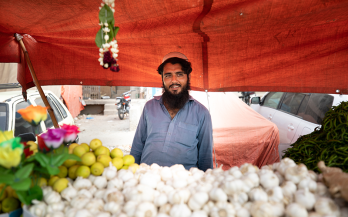

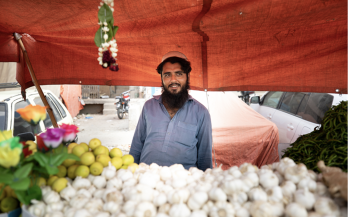
Opinion: On Food System Change, Time to Keep Calm and Accelerate
Food system transformation (FST) is fundamental to human progress. Feeding and nourishing the world. Creating jobs and reducing poverty. Managing the environment. Avoiding catastrophic climate change. Building resilience to shocks. These are the building blocks of human and planetary wellbeing.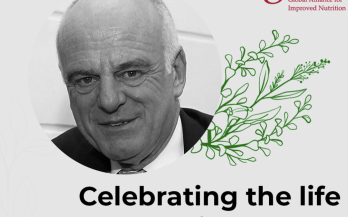

Reflecting on Progress Since UNFSS+2
EP 23
35 minutes▶ Play this episode
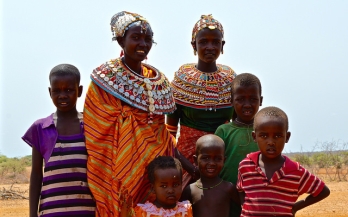
Tools to support food systems transformation Releasing the brake on food systems transformation: Africa-focus
- 25/07/2025
Since the lead-up to the UNFSS, we have been supporting countries to draw up pathways to better food systems, and to begin walking the talk. But many constraints still hinder progress, and reforms are sorely needed. That’s why we have worked with governments to develop and implement a series of practical tools to strengthen policy decision making processes and capacities. These are tools created to give users a hand over major, common barriers. They are also designed to align with or to support ongoing national processes, such as monitoring plans, or indeed continental and transnational ambitions, including the Comprehensive Africa Agriculture Development Programme (CAADP), and the seven aspirations of Agenda 2063 which call for a more prosperous, integrated, democratic, peaceful, pan- African, people-driven, and influential Africa by 2033. The tools collected here can be instrumental: in diagnosing food systems to identify critical gaps and untapped opportunities; in shaping nimble action plans in line with national priorities; in identifying much-needed policy reforms to ensure sectors act alongside each other, rather than against; and in providing new ways to effectively navigate political, financial, and technical impediments. Barriers have stood in the path of meaningful progress for too long – we must break through them.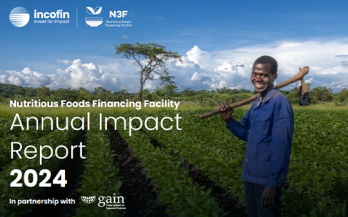
Nutritious Foods Financing Facility
- 22/07/2025
N3F’s 2024 Nutrition Impact: Expanding Access to Nutritious Foods Across Sub-Saharan Africa The Nutritious Foods Financing Facility (N3F) released its first impact report, underscoring a strong selection of impactful investees enhancing nutrition across Sub-Saharan Africa. In 2023, the N3F portfolio collectively produced or facilitated access to over 647 million servings of nutritious food products, reaching an estimated 3 million end-consumers, the majority of whom are low- and middle-income households.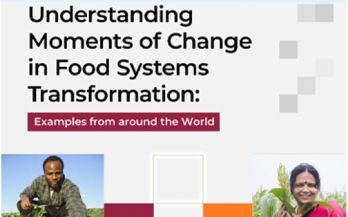
Understanding Moments of Change in Food Systems Transformation
- 21/07/2025
Understanding Moments of Change in Food Systems Transformation Four years on from the UN Food Systems Summit, how well are we progressing in transforming food systems so that they reduce hunger, increase access to healthy diets, reduce climate emissions, improve climate resilience, create good jobs, and nurture the environment? The numbers tell a mixed story. According to the Food Systems Countdown Initiative, itself a creation of the UNFSS, only 20 of 42 global food system indicators are trending positively (1), with none fast enough to meet 2030 SDG goals. These numbers are important but inevitably reliant on data that are 2–3 years out of date.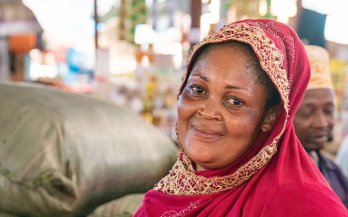
Priority Value Chains for Investing in Women’s Nutrition
- 21/07/2025
Malnutrition in all its forms continues to be a major public health challenge worldwide, and progress on improving it has been very slow, with no country on track to meet global nutrition goals and the number of people affected by hunger or unable to afford a healthy diet rising in recent years.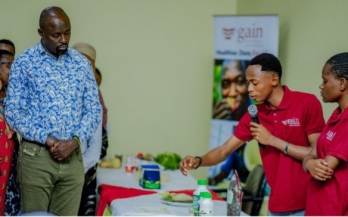
GAIN Discussion Paper n°19
- 10/07/2025
The UN Food Systems Summit (UNFSS) was the first time youth were actively invited to be equal participants in a global food or nutrition summit. Youth played a pivotal role in UNFSS, contributing diverse perspectives to transform global food systems. Through youth-led dialogues, leadership in action tracks, and the UNFSS Youth Constituency, young people influenced policies, showcased innovative solutions for sustainability, and championed intergenerational equity. A key outcome of UNFSS was the Food Systems Pathways, which set out countries’ approaches for transforming their food systems to be more sustainable, inclusive, and resilient, aligned with the Sustainable Development Goals.